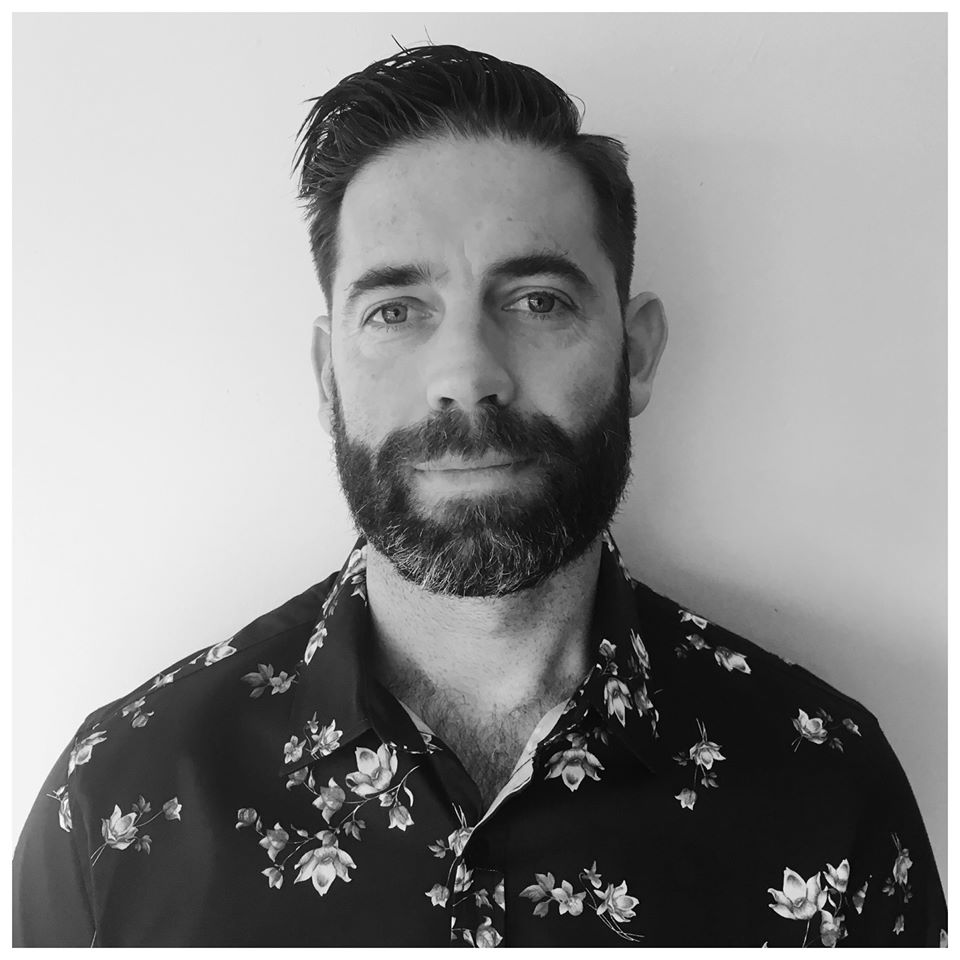DIMENSIONS OF A PASTOR
Joseph McAuley • April 15, 2020
What do pastors do?
This is a question I get asked from time to time. One of my friends, a surgeon, is always quick to point out that I work on a Sunday. He then asks what I get up to with my six-day weekend. There is a lot to what a pastor does, a myriad of tasks big and small, some upfront and some behind the scenes. Some of these things are profound and others banal; though in this lifetime, it will never be exactly clear which was which. Rather than unpack the thousand tasks of a pastor, I want to look at three interwoven aspects of the pastoral vocation and focus particularly on the prophetic-mystic aspect and its importance in this cultural moment.
I see pastoral ministry as consisting of three interwoven responsibilities, three specific angles of pastoral consideration, with each complimenting, balancing, informing and informed by the others.
1. Ethical-Professional
2. Shepherd-Theologian
3. Prophetic-Mystic
THE ETHICAL PROFESSIONAL
The expectation that pastors be people of character and good moral standing goes without saying. 1 Timothy 3 is clear that anyone aspiring to leadership within the church should be a person of character, someone who is ‘above reproach’ and ‘respectable.’ In our 21st century context we should appreciate that the language used to describe such a person isn’t that of ‘an all-round top bloke,’ or ‘a genuinely lovely lady.’ Rather, in our cultural context, we speak of professionals, ethics, codes of conduct and character. A vocational minister is someone who serves as an ethical-professional in their field, someone who has received professional training and is engaged in ongoing professional development and professional supervision.
Further to being ‘above reproach’ and ‘respectable,’ the Apostle Paul highlights the need for leaders to be ‘able to teach.’ The ability or ‘ableness’ here, is not simply about the capacity to speak or teach in a public forum, but the content of one’s teaching as well. We are therefore talking about issues of character, as well as of capability and content. All three are required and all three are formed, framed and furthered via initial professional training, ongoing professional development and healthy professional supervision.
Of course, pastoral ministry isn’t simply a professional function within an institution – a service rendered, a gainful occupation, a career pursued – there is more too it. Too often though, the secularization of our worldview imposes an impoverished perspective on form and function, be that of laughter with friends, a glass of wine, or the pastoral vocation. The effect of this is to reduce things to their utilitarian function in maintaining whatever version of the status quo we find most comfortable. Pastoral ministry can be reduced to this as well with people looking for pastors that say the things they expect to hear, want to hear, and in just the way they like to hear them. The temptation exists for pastors too, to say what is easiest, most comfortable, most likely maintain the status quo. This is something pastors should resist. There is more to the pastoral vocation than maintaining the status quo. As an ethical-professional the pastor is also called to be a shepherd-theologian and a prophetic-mystic.
THE SHEPHERD-THEOLOGIAN
As well as being an ethical-professional, a pastor is also called to be a shepherd-theologian. While it might be tempting to split shepherd and theologian into two distinct aspects of pastoral ministry, the preservation of a merger is important. The unique care that a pastor offers springs from theological reflection, while the primary concern motivating the theological inquiry of a minister is pastoral care. Each is in the service of the other and together form a subversive collaboration geared around formation in Christ. Thus, as Vanhoozer and Strachan point out in The Pastor as Public Theologian; “The faithful pastor will always be a counter-cultural figure: what else can pastors be when they proclaim Christ crucified and then ask disciples to imitate their Lord by dying to self?”
The unique task charged to a pastor is not the baptism of one’s dreams for success, but of one’s life into Christ’s as a living sacrifice; to call people into a kind or dying that opens the door to a new kind of living. That’s the care a shepherd-theologian offers, a unique kind of care. Eugene Peterson puts it like this in The Contemplative Pastor, “I am undermining the kingdom of self and establishing the kingdom of God. I am being subversive. My long-term effectiveness depends on my not being recognised for who I really am.” Whoops – shouldn’t have put that quote in.
THE PROPHETIC-MYSTIC
While on one hand a subversive figure, the pastor is also one who functions publicly as a prophetic-mystic. Most simply, in a world disenchanted by secularism the pastor is tasked with re-enchanting the imagination and awakening people to the ever-present invitation of Christ to newness of life. As John R. Bodo puts it in The Pastors Role as Prophet, “he must articulate the will of God for a particular, people, time and place.” The pastor is one who attempts to discern and profess the possibilities of God in the moment. This is an edgy and radical space to occupy, but the invitation is to subtlety.
Shoot-from-the-hip cavalier declarations of “thus saith the Lord,” are not required. From a place of discernment, stillness, and quiet contemplation, a pastor can simply speak, preach and bare witness to the work of the Spirit in the world as she perceives it. It need not be inflated with claims of having heard God’s voice or minimalised as something one was pondering the other day – take it or leave it. Rather, spoken with clarity and conviction, the word one perceives as having come from outside of oneself is entrusted back to the Spirit to deposit in the hearts of listening ears as a Word from Elsewhere. Thus, we’ve a beautiful subtlety at play, rather than demonstrative tomfoolery, when it comes to the prophetic-mystic side of the pastoral vocation. Don’t misunderstand me though, the sleight of hand in no way diminishes the edgy and radical nature of pastoral ministry.
In his essay The Priest as Enchanter, Urban T. Holmes tells of anthropologist Barbara Myerhoff and her work with the Huichol Indians of Mexico. Among their people they have a religious specialist who combines in one person the classical sociological definition of the priest and the eccentricity of the shaman. Holmes summarises, “The institutional role, with all its predictable expectations, is joined to a person who possesses a certain personal integrity as he lives on the margins of the social structures. He is both a controlled professional, if you will, and an unpredictable agent of surprise. This is a concrete representation of the model I have in mind for the contemporary Christian priest, who is both professional and enchanter. He should be acquainted with realms of human experience that exist in the twilight of our learning, in the depth of human existence, and in the possibilities of God’s future. The priest needs to affirm the liminal quality of the shaman, even if the model of the shaman per se is not always helpful.”
The pastor as a controlled professional as well as an unpredictable agent of surprise is a brilliant way of articulating the interwoven roles of a pastor as ethical-professional, shepherd-theologian and prophetic-mystic. These dimensions complement, balance, inform, are informed by, encourage and provoke each other. No pastor should settle for one position, instead the integration of each is required.
As the world seeks to navigate the current COVID-19 situation, it is imperative that in playing their role, pastors interweave the ethical-professional, shepherd-theologian and prophetic-mystic aspects of their vocation.
Pastors need to be ethical-professionals paying attention to and heeding the advice of medical professionals, the Ministry of Health, the World Health Organisation and so forth. Ignoring advice about public gatherings, as some in New Zealand were and others in America are (only to end up being arrested) isn’t an edgy and prophetic stand for the gospel in the face of governmental tyranny and control. It’s just silly. As well, it is a complete failure to love one’s neighbour.
Pastors need to be shepherd-theologians encouraging people in their journey of discipleship to be those that trust in God, look not to their own interests but also the interests of others, and seek to be a non-anxious presence in the world. Promoting ludicrous conspiracy theories that blame coronavirus on 5G networks is… well. Words failed me just then, so let’s just stick with ludicrous. Pronouncing the virus as a judgement or a punishment sent by God is naive and fails to understand God as revelled in Christ, Christ who comes as the healer. This sort of commentary is to fail in the role of shepherd-theologian. Better to highlight, as N.T Wright does, that “It is no part of the Christian vocation, then, to be able to explain what’s happening and why. In fact, it is part of the Christian vocation not to be able to explain—and to lament instead. As the Spirit laments within us, so we become, even in our self-isolation, small shrines where the presence and healing love of God can dwell. And out of that there can emerge new possibilities, new acts of kindness, new scientific understanding, new hope.”
Pastors need to be prophetic-mystics who are radical enough to whisper with subtly and grace that which they sense the Spirit to be advocating even in the darkness; behold I am making all things new.
This is a guest post from Joseph McAuley, who is the lead pastor at St Luke’s
in Tauranga, New Zealand. He has a pentecostal heritage but is also drawn to the various ecclesial expressions that make up the Great Traditions of the Church. He is something of a pracademic; a pastor/theologian who has a Master of Arts from Alphacrucis College and a Doctorate of Ministry from Fuller Theological Seminary. He is as comfortable with books and learning as with the aches of the soul. Out of interest, if you are familiar with the Myers-Briggs personality types, he is an INTJ. If Strength Finders is more your thing, his top five traits are; strategy, learner, futurist, maximiser and relator.

Sometimes, we categorise people out of Gods kingdom because they don’t meet the brief, they don’t fit our preconceived ideas and expectations. So, this Christmas, when I put my nativity in pride of place to celebrate “the King has Come”, I am reminded that a King didn’t come, at least not in the eyes of all those waiting on one. The nativity was the ultimate Kris Kringle (maybe the first!), where we quite simply don’t know what to expect and should always be prepared for a surprise, but it will be a gift.

St John of the Cross wrote: “If a man wishes to be sure of the road he treads on, he must close his eyes and walk in the dark.” When we can’t see, and can’t make any sense of things, keeping on can be the deepest form of trust. It can serve a profound purpose, for the dark night of the soul is sometimes the space between who we have been and who we will become.


